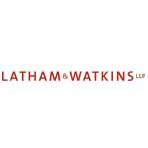
For companies and their general counsel – as with the rest of the world, generally – 2020 presented unique challenges. As we move through 2021, organisations of all sizes and across all industries face unprecedented forms of scrutiny, liability, and potential “bet-the-company” penalties for misconduct by US and other international regulators.
In response to the COVID-19 pandemic, governments worldwide have distributed significant amounts of emergency relief funds to help manage the pandemic and mitigate its impact on individuals and businesses. Over the course of the last year, the United States, for example, has passed the largest spending measures ever enacted, providing more than five trillion dollars in aid through multiple stimulus bills and more is being proposed. Those relief funds include oversight mechanisms based upon TARP that seek to combat potential fraud, waste, and abuse on behalf of fund recipients, paving new avenues for regulatory scrutiny.
In June 2020, the US Department of Justice (DOJ) issued updates to its Evaluation of Corporate Compliance Programs as part of its overall framework that prosecutors should consider in conducting corporate investigations. That framework will apply to COVID-related investigations. It also provides insight for GCs of corporations seeking to develop and implement a best-in-class compliance program. Among its recommendations, the guidance encourages companies to leverage technology and engage with compliance data real-time – a clear signal to businesses of the importance of data management and security in building a robust compliance program.
Additionally, although robust white collar enforcement has continued in a number of areas over the past four years, the 2020 US Presidential election will usher in a new administration that will likely adjust its regulatory and enforcement priorities on several fronts. With new leadership, financial regulators – including the DOJ and US Securities and Exchange Commission – are poised to take more aggressive stances to combat alleged corporate wrongdoing.
It is no surprise, therefore, that global general counsel are expressing heightened concern over these new and emerging challenges. To gain more direct insight into these issues, Latham & Watkins is delighted to partner with GC Magazine and The Legal 500 in their inaugural “Under Investigation: A GC Guide to White Collar and Sanctions Trends in 2021” to ask GCs about their top regulatory challenges. The following responses offer a snapshot into the concerns and risks GCs around the world have identified as top-of-mind in this evolving regulatory climate.
Douglas Greenburg
Benjamin Naftalis
Nathan Seltzer
Global Chairs, White Collar Defense & Investigations, Latham & Watkins LLP
